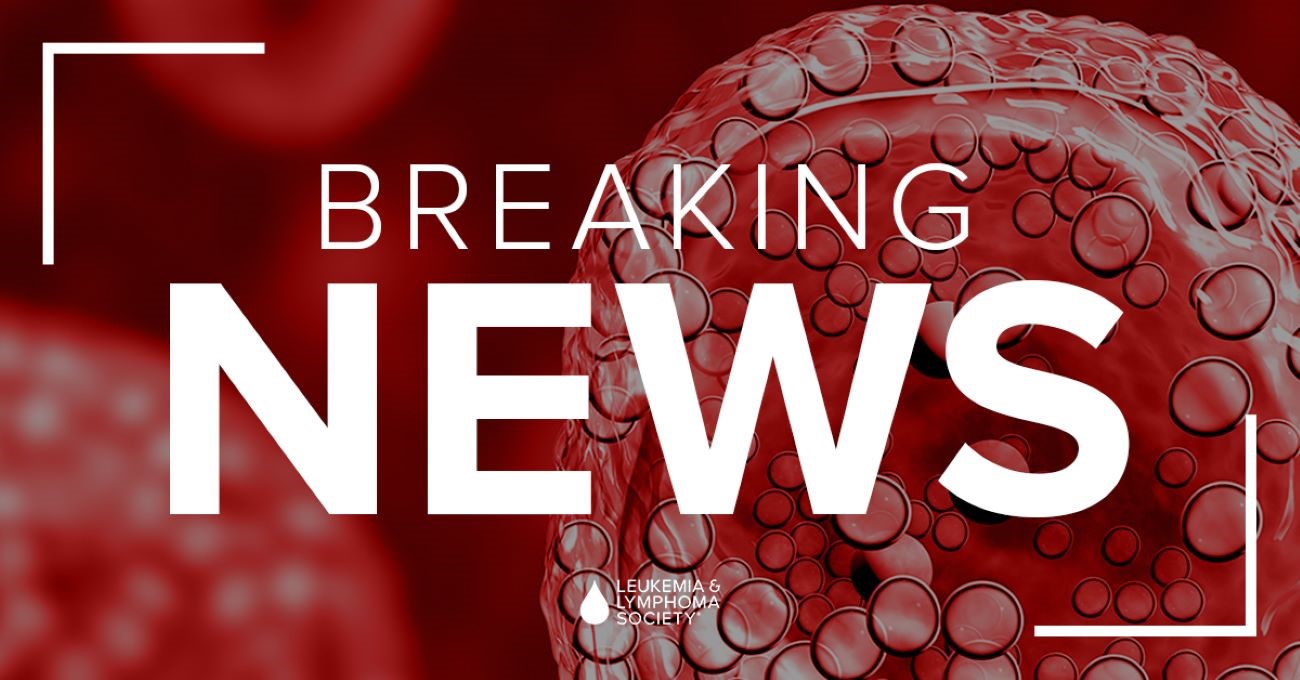
The U.S. Food and Drug Administration (FDA) last week approved axicabtagene ciloleucel (axi-cel, Yescarta®) for patients with large B-cell lymphoma (LBCL) who either did not respond to first-line standard chemotherapy or relapsed within 12 months. Until now, CAR T-therapies like axi-cel have been saved for blood cancer patients who have tried and failed multiple earlier treatments. This is a big step for CAR T because it is now proven that CAR T-therapy can outperform the best therapy we had for certain patients that failed initial therapy.
This approval was based on results from the ZUMA-7 study, which showed clear benefits of earlier CAR T-treatment. One-time axi-cel infusion led to significant improvement in event-free survival compared to the current standard of care, which includes chemotherapy and a stem cell transplant. Axi-cel treated patients were 2.5 times more likely to be alive two years later and have no signs of disease progression despite having no additional treatment.
As one of the earliest supporters of CAR T-cell therapy research – we started funding CAR T in the 1990’s – it is remarkable for me and my LLS colleagues to see this innovative treatment being used safely and effectively earlier in cancer care. While only time can tell the whole story in LBCL patients, CAR T is leading to some amazing results. LLS-funded investigator Carl June reported recently that two of the first ever blood cancer patients to be treated with CAR T-therapy remain in complete remission more than 10 years later.
To date we have invested more than $100 million to advance CAR T and other game-changing treatments that harness the power of the immune system to fight blood cancers. But this is still just the beginning. LLS is already investing in next generation CAR T and other oncology immunotherapies.
LLS is intensifying exploration of immunotherapy to bring new hope to more patients
With now 10 FDA approvals in the past five years, CAR T-immunotherapy is a game changer for thousands of patients, but there is much more to be done and the LLS commitment is as a strong as ever. Our research dollars are invested in making immune-based therapies even more effective, safer, available to more patients earlier in their treatment, all while lowering costs and speeding the treatment process.
One example is CAR T-therapy that uses donor cells instead of a patient’s own cells to provide “off the shelf” options. This approach could increase effectiveness, reduce costs, and have the important benefit of starting treatment much faster than the month it can currently take to prepare CAR T-cells for an individual patient. Another ground-breaking approach is looking at a way to make powerful CAR T-cells inside the body by injecting a code that instructs the immune system, much like the COVID-19 mRNA vaccines do.
LLS is also supporting the development of CARs with immune cells other than T cells. The immune system’s natural killer cells (CAR NK) and macrophages (CAR M) could be the key to even longer lasting remissions in patients with even more types of blood cancer—and possibly even non-blood cancers, such as breast, colorectal, pancreatic, and other solid tumor cancers.
We also invest in other novel immune-based research areas. For example, we recently invested in two first-in-class antibodies that target biological “checkpoints” that release the brakes and activate immune cells so they can fight cancer.
Since our inception nearly 75 years ago, LLS has been expanding what’s possible in blood cancer treatment. But we don’t do it alone. We owe a debt of gratitude to everyone who helps make our work possible and we especially applaud the patients and dedicated scientists all over the world who make advances like this latest one in CAR T-treatment possible.